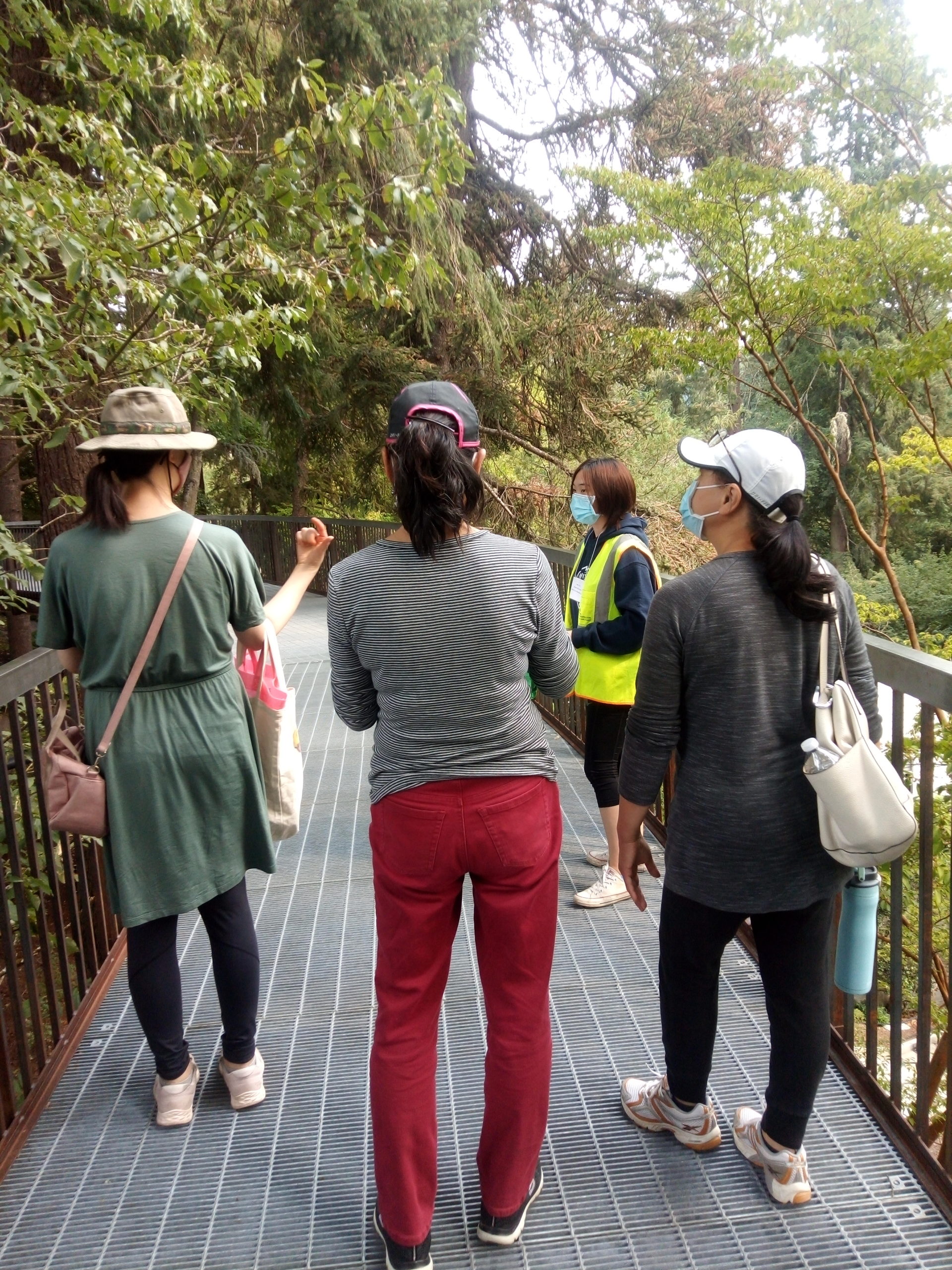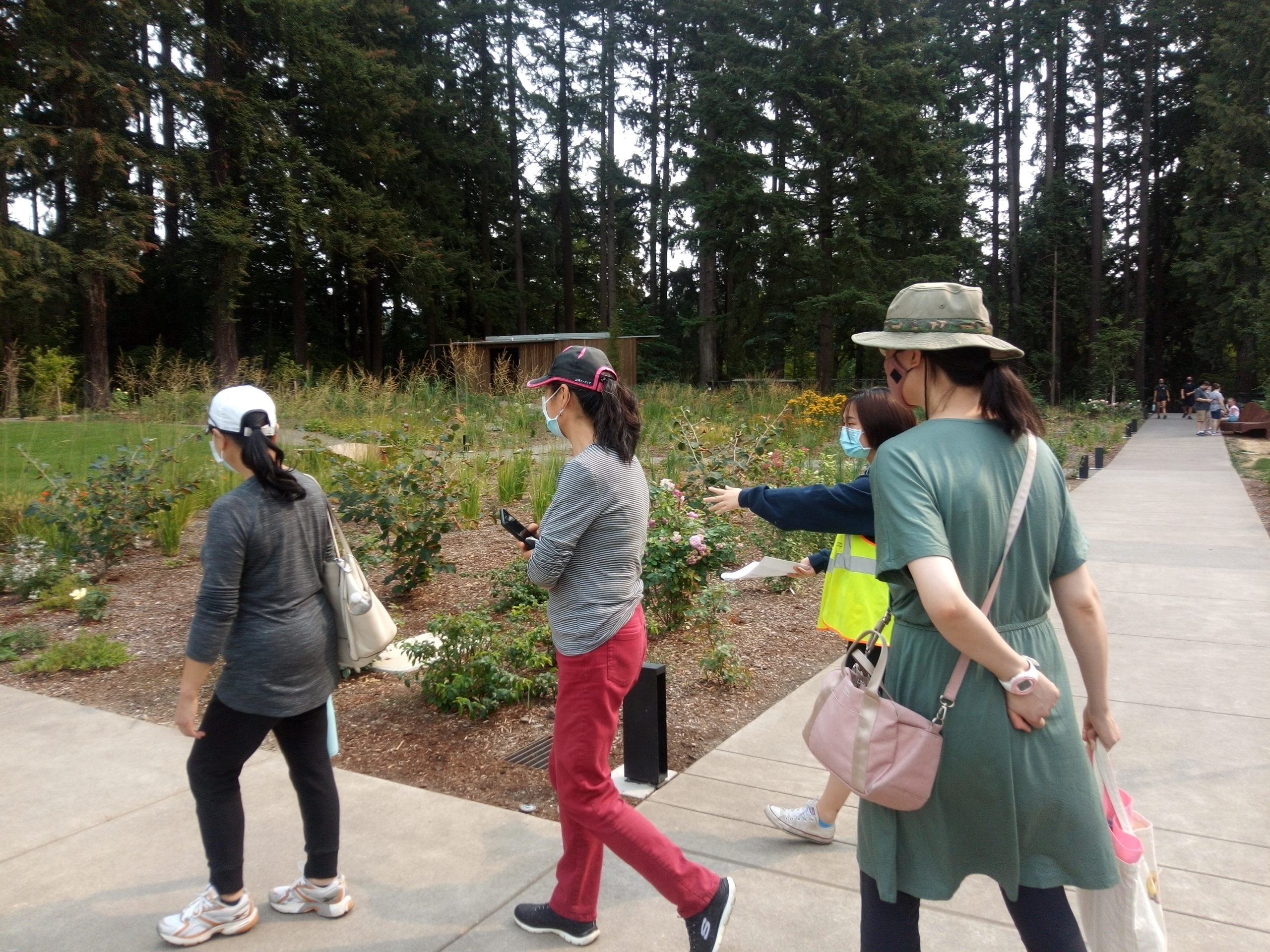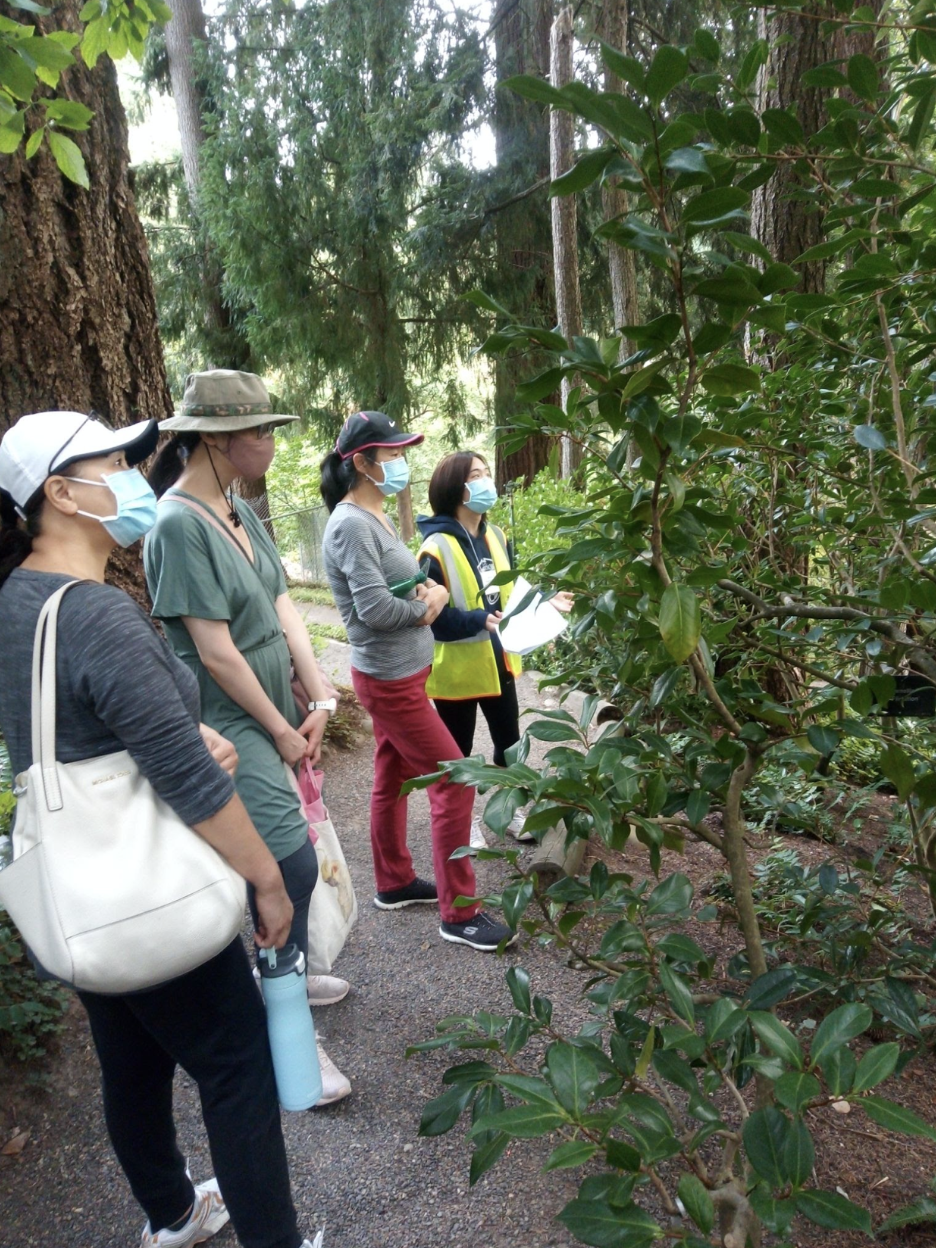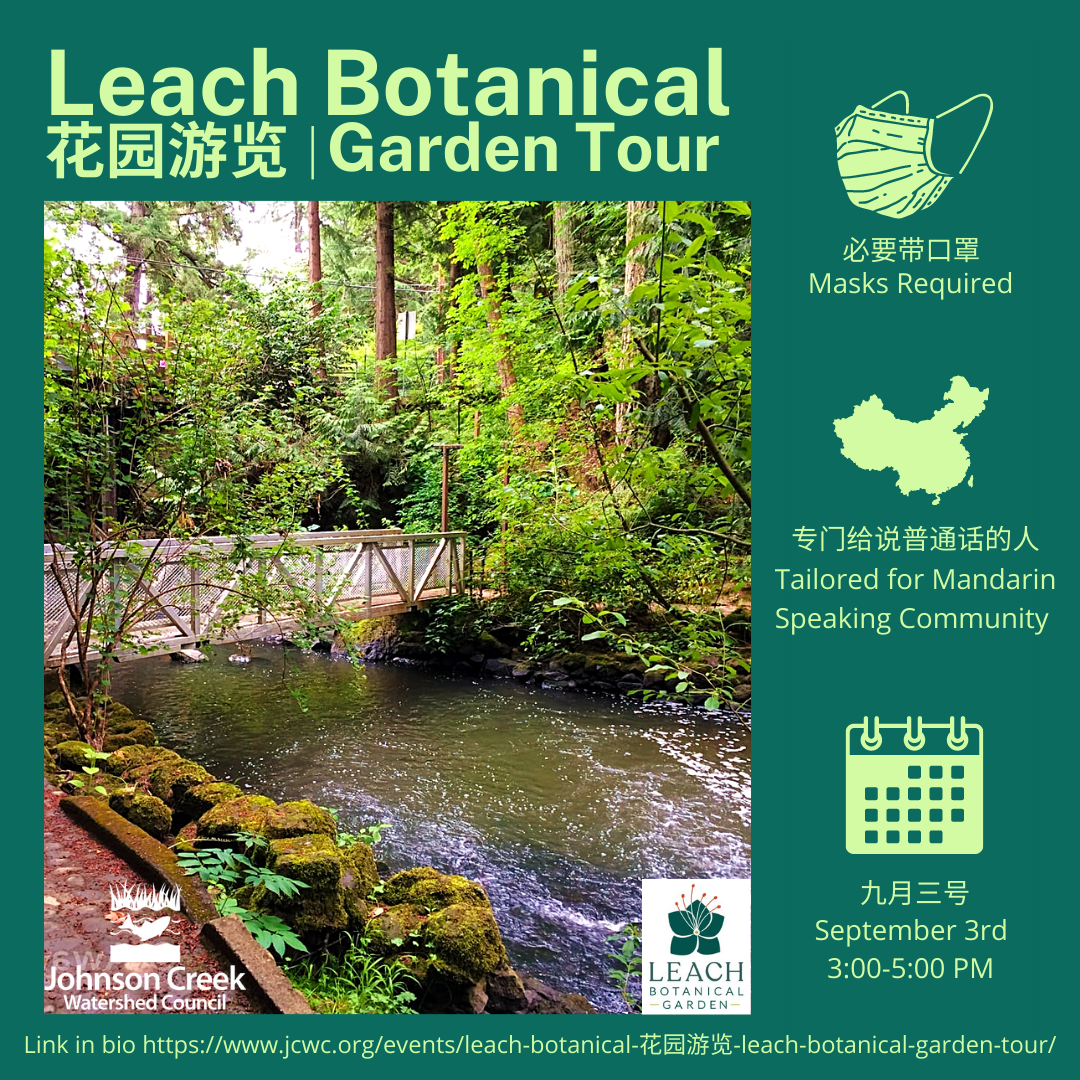By: Helen Chen
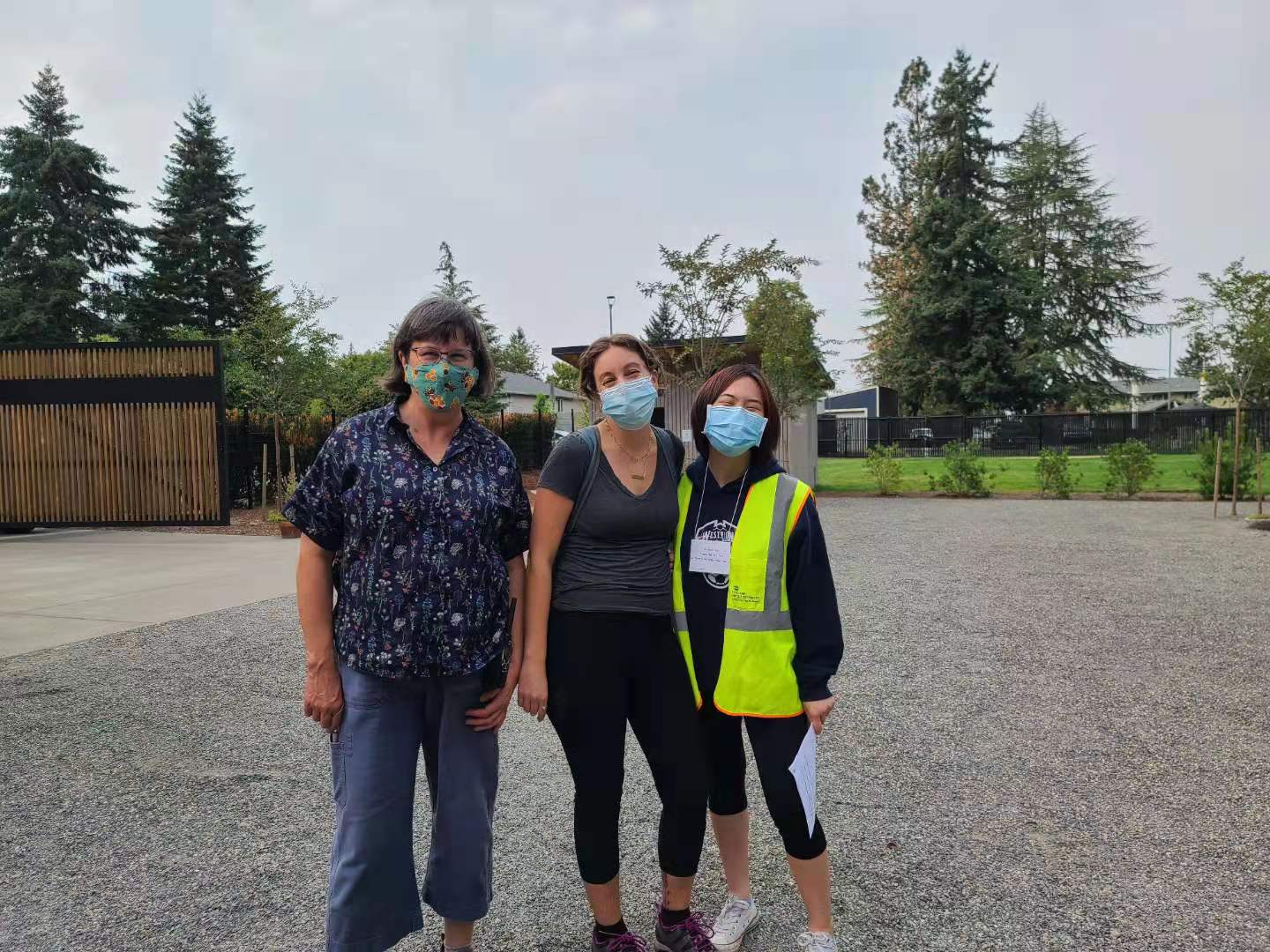
During my internship at the Johnson Creek Watershed Council, I learned so much about environmental conservation and working directly with a community. Words cannot express my gratitude for having the opportunity to work under the council for the duration of my internship. In my internship, I explored beautiful landscapes and learned about its history, researched environmental stewardship, and hosted my very own event.
First and foremost, a topic that needs to be addressed is increasing accessibility in the environmental community; whether that means overcoming the language barrier or lack of awareness of environment protection, there needs to be more discourse on this topic. I personally know many people who have a passion for helping the environment, but are unable to due to their inability to fluently understand English.
Having lived in a location with tremendous air pollution when I was younger, I also grew an appreciation for nature, hoping to be able to spread the joy of being in nature to others in my community. Sometimes, I would look up into the blue skies and feel incredibly appreciative of having the opportunity to grow up in an environment like Oregon. Many others I know also cherish the environment due to their lack of exposure to a good environment earlier on in life. However, with the language barrier, it is hard for them to find information about beautiful parks they can visit or opportunities for them to help the environment.
This language barrier goes beyond the local community level, but also in the formal scientific field. According to T. Amano in 2016, high percentages of research papers are available in specific languages, rendering it difficult for the scientific community to be on the same page. This is particularly harmful, as it can cause inconsistencies with scientific theories and could prevent our knowledge about the environment significantly.
You might be wondering: what can we do to help tackle this language barrier in the community? The answer is actually quite simple. When creating content (such as flyers, materials to spread word about an event), try to be inclusive with terminology used or create different translated versions and spread it on different platforms that can be more accessible for specific communities. It is also important to be aware that each person or country has their own way with going about environmental conservation; one example would be cultural differences placing different significance on how to protect the environment (CEP, 2016).
In my own event with the Johnson Creek Watershed Council, I tried to incorporate these solutions to help bridge the language barrier. In early September, I hosted a tour in Mandarin for people in the community at Leach Botanical Garden. This tour tailored for the Chinese-speaking community was an attempt to connect those who are interested with nature in a language and manner that they may be more comfortable with. The tour explored breathtaking parts of the garden: its newly built tree walk, stone cabin, and many more.
Overall, this internship and working as a part of the Johnson Creek Watershed Council has been an incredibly rewarding and enlightening experience. I am forever appreciative of having the opportunity to take part in such an amazing organization and work with great people. I was able to learn so much more about environmental stewardship as well as how it all ties back to my Asian identity and how I can contribute to both the environmental and Chinese community!





Some photos of Leach Botanical Garden that we explored on the tour!
我在 JCWC 的实习生经历!
在 Johnson Creek Watershed Council当实习生的时间,我学到了自己怎么可以保护环境和怎么可以跟自己的社区来交通跟帮助教育大家。言语是无法表述我对这个实习期间给我的帮助跟教育的感激。在实习期间,我去了很多的美丽的风景,了解了这片地的历史,研究了环境管理,还有主办了我自己的活动。
首先,我们需要解决的问题是增加环境团体里面的可达性。无论这代表客服语言的障碍或是团体里面缺乏环保意识,我们是需要更多的来讨论这个话题跟想一想解决方案。我自己认识很多热衷于帮助环境的人,但由于他们无法流利地理解英语或者别的外语,他们无法做到这一点。这是一件非常可惜的事情。
我小时候住在一个空气污染非常严厉的地方,而应为这起事件,我看到俄勒冈州的花花草草时,自然就开始欣赏了大自然。我也是非常希望可以把这片乐趣跟喜爱流传到别的欣赏自然或是我认识的团体。有时候我自己会仰着头,仰望蓝天。我是非常感激能有机会在俄勒冈的又美又漂亮的环境中成长。同样,我认识很多人因为小时候没有接触到良好的环境,而下载很珍惜环境。但是因为语言障碍,他们很难能找到他们可以知道关于美丽的公园的信息或怎么样能帮助环境的机会。
这个语言障碍,不光影响到了市区层面,而且也存在与正式的科学领域。在2016年,T. Amano说大量的研究论文以不同的语言提供的,使得科学界难以达成共识。这是非常的有害,因为它可能导致科学理论的不一致,并可能严重阻碍我们对环境的认识。
你现在可能想知道: 我们到底可以做些什么来帮助解决环境保护团中的这些语言障碍?答案其实是很简单的。在创建内容(例如传单或传播事件信息的材料)的时候,尝试尽量用广泛的术语或创建不同的翻译版,本并将它传播到不同平台上。这样会帮助很多不同的人。另一件重要的事情是一定要意识到每个人跟每个国家都有自己来环保的方式; 一个例子是文化差异对如何保护环境具会有不同的重要性 (CEP, 2016)。
在我自己与Johnson Creek Watershed Council的活动中,我自己尝试了将这些解决方案结合起来,希望可以帮助消除语言障碍。九月初的时候,我用中文在 Leach Botanical 公园为住附近的人举办了一个游览。这个游览是专门给说普通话的华人,主要希望是可以用一种对自然感兴趣的华人可能更熟悉的语言和方式来让他们了解这片环境。这个游览探索了公园中很多的令人惊叹跟有趣的部分:新建的树木步道、小石屋,等等。
总之,当作 Johnson Creek Watershed Council 的实习生真真切切的教了我很多的事情。这个实习期间是一次令人难以置信的有益和启发性的经历。我会永远感激有这样的一个机会可以参与以个了不起的组织并与了不起的人一起工作。我学到了更多关于环境管理的知识,以及它如何与我的亚洲身份联系在一起,以及我如何为环境和华人社区做出贡献。谢谢!





我们在探索Leach植物园照的一些照片!
Resources:
https://www.ncbi.nlm.nih.gov/pmc/articles/PMC5199034/
https://www.bard.edu/cep/blog/?p=8685
https://stories.uq.edu.au/science/2021/07/overcoming-language-barriers-in-science/index.html

